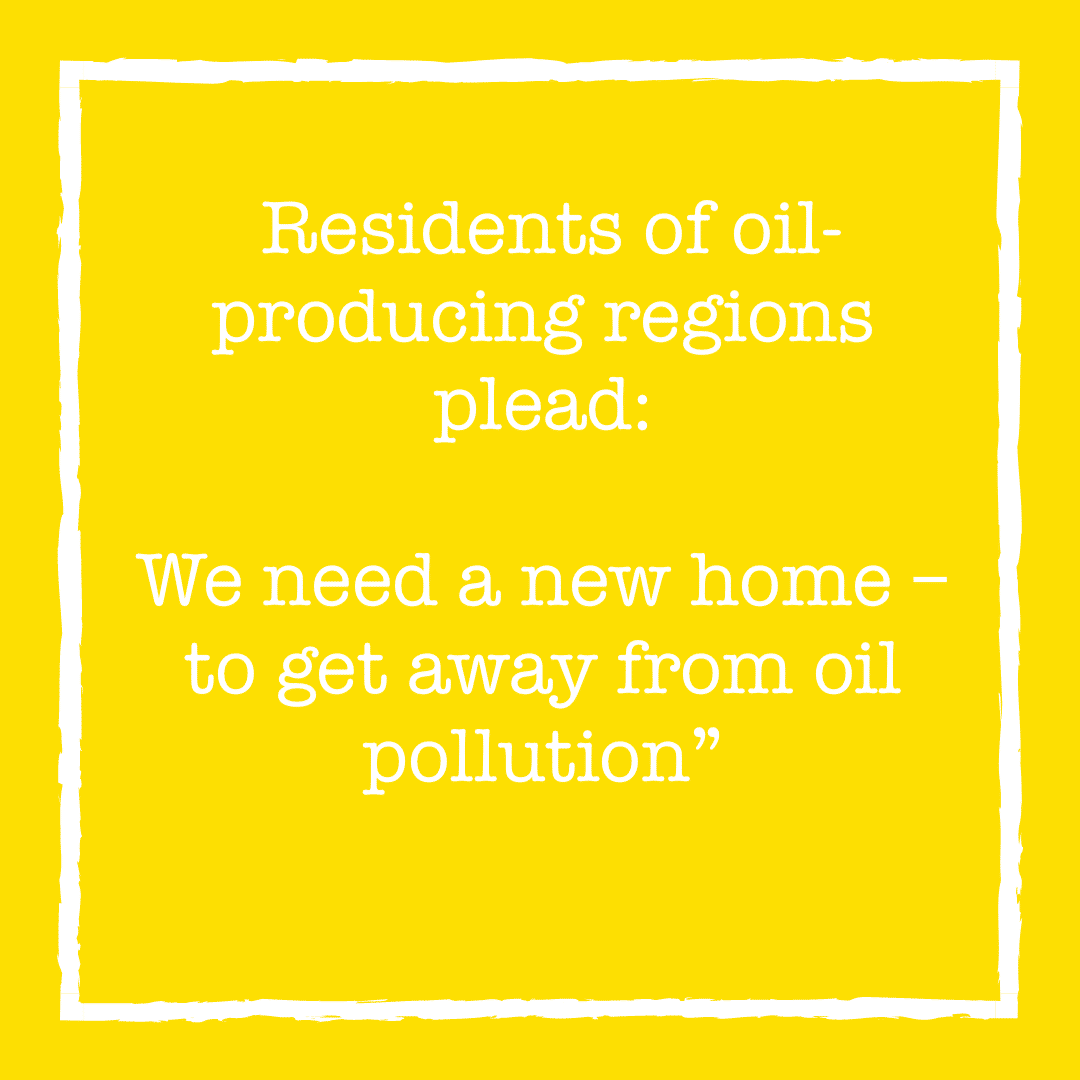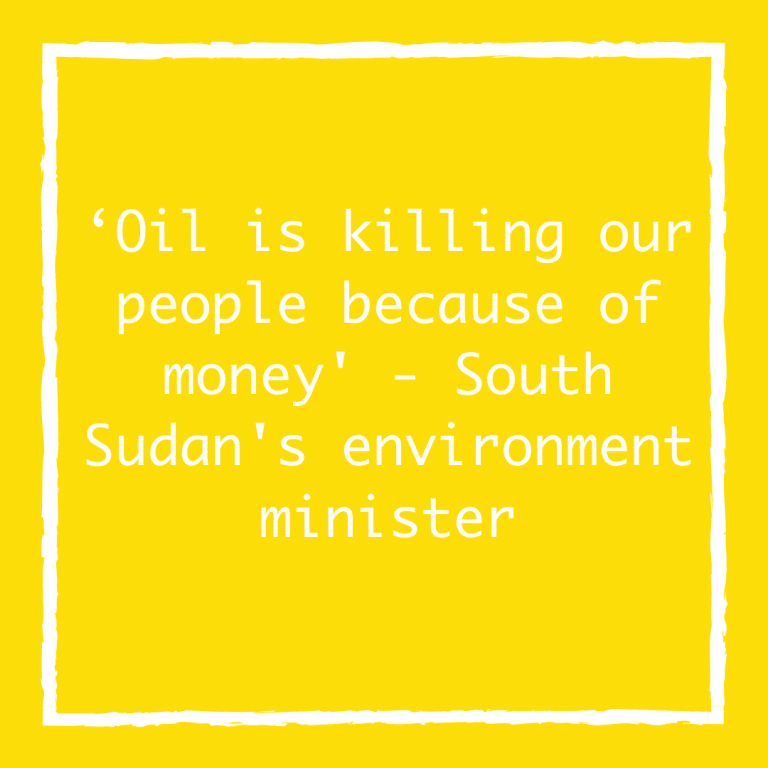by Hou Akot Hou, Northern Bahr Gazal, Aweil, South Sudan
“Our entire community has to be relocated,” says Michael Jeal, a young activist who is based in Paluch, a town situated in northern South Sudan’s oilfields.
“Some of the oil drilling sites are located within four blocks of where I am standing, which means that we in Paluch are directly exposed to the sites’ wastes and leaks. These are causing terrible ailments in children and others,” Michael adds.
“Our new home has to be far enough away from the oil fields for our children to grow up healthy,” he concludes.
The ailments that Michael is referring to include birth deformities, and chronic learning and movement disabilities.
This call for relief from the “Black Tide” of oil pollution is anything but new, as Michael points out. “We have cried for assistance for at least a decade,” he states.
These cries are getting more urgent.
“This is because the level of contamination keeps on rising. It is now far beyond the capacities of residents to deal with it. And many of them are already crippled by oil-caused ailments,” states Uguak Simon, an activist in the town of Melut.
Oil field workers are also suffering under this contamination. “Some staff members have experienced immediate swelling upon touching oil field equipment,” states Deng Bul, who works for the Petrodollar drilling company.
“We desperately need the government to allocate us new land, and to build us schools and better hospitals,” states Melut resident Atiku Abraham. These demands have been voiced via the committees constituted by local residents.
Abraham adds: “If the government can’t deliver these, they better halt the pumping of oil, because it is killing our people and our land.”
The loss of fertility of farmland is a major concern in South Sudan’s oil producing regions.
“Our land has been poisoned. It no longer produces food,” says Sarah Etoo, head of the local league of farming women. “The only hope is for the government to find a way of restoring its fertility.”
Sarah adds: “This poisoning also affects our people. The government has to stop the flood of deformed infants.”
Many residents of the oil producing regions have given up on the government – and on their lives in their communities. They have fled their homes for refugee camps in other parts of the country and in Sudan.
As one refugee stated: “We waited for decades. Our cattle were dropping like flies due to the pollution. There were more and more deformed people in our community. We never got paved roads and other things we needed and were promised. We had no choice but to flee.”
Rebuilding the communities in the oil-producing regions would be a huge job, states Uguak Riak, a Melut-based expert.
“We need special machines to remediate the land. The widespread departure of refugees means that titles to farmland have gotten mixed up. We have to set up a process of establishing and verifying claims. And, most of all, we have to offer the refugees shelter, clean water and other basics to get them to come back. It’s a difficult but not impossible job,” states Uguak.
Neither the government of the Upper Nile state nor the oil companies active in the area have shown any interest in undertaking this rebuilding – even though their operations caused the poisoning of the communities in the first place.
The state government itself lacks a governor to run it. “The government is a mess,” says a local resident. “They are simply not doing anything constructive.”



